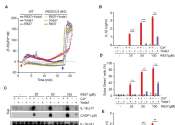Trio win medicine Nobel for work on how cells adapt to oxygen
Three researchers from the United States and Britain on Monday shared the Nobel Medicine Prize for research into how human cells sense and adapt to changing oxygen levels, opening up new strategies to fight such diseases ...
Oct 7, 2019
0
684









